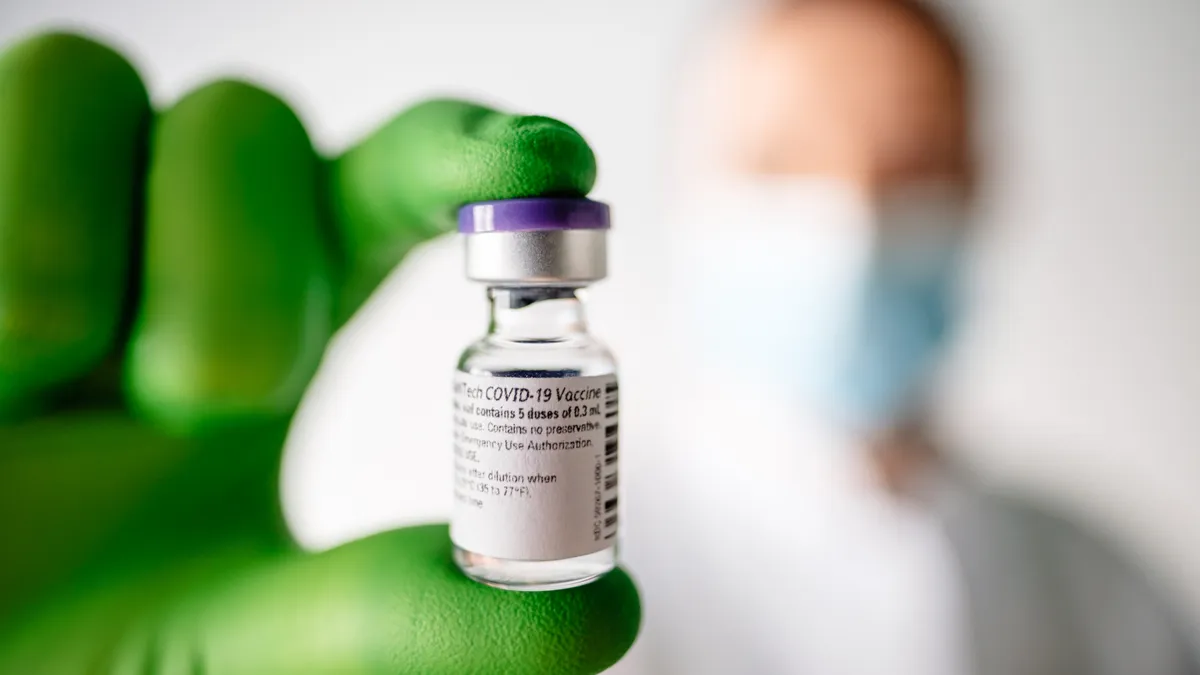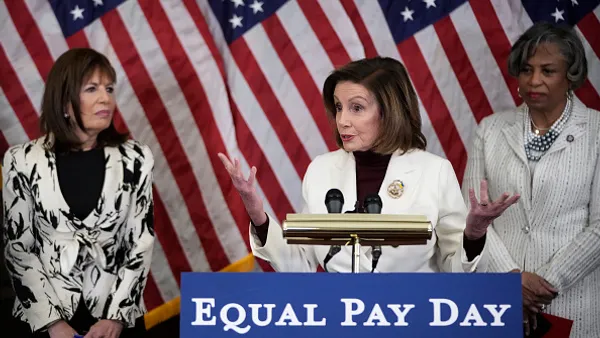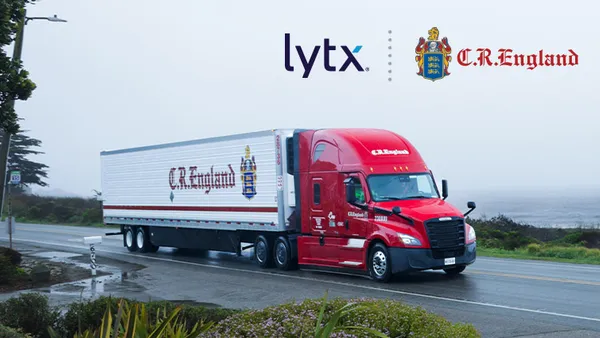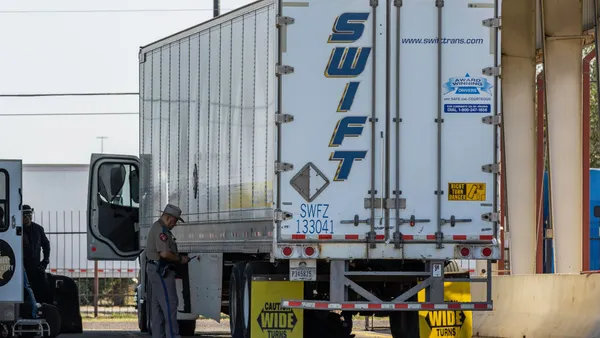Dive Brief:
- The Society for Human Resource Management and 41 other business groups including the U.S. Chamber of Commerce have asked the U.S. Equal Employment Opportunity Commission to clarify "the extent to which employers may offer employees incentives to vaccinate."
- In a Feb. 1 letter to EEOC Chair Charlotte Burrows sister publication HR Dive obtained from the HR Policy Association, a signee, the groups wrote that incentives may aid in coronavirus vaccine distribution. But many employers are concerned about the liability they could create in offering such incentives, the letter said.
- The signees asked EEOC to clarify how they might offer vaccination incentives without infringing upon the boundaries established by the Americans with Disabilities Act and other laws enforced by the agency. Specifically, the groups requested that the agency issue guidance that defines "what qualifies as a permissible incentive as broadly as possible." An EEOC spokesperson said the agency appreciates "input from all stakeholders and will review the letter carefully."
Dive Insight:
Scores of employers have announced plans to offer paid time off to employees who get vaccinated. Ryder, for example, announced it would allow workers to take up to six hours of PTO, including three hours for the first vaccine dose and an additional three hours for treatments that require a second dose. The company said it is not mandating employees get vaccinated.
Incentives involving PTO are less of a concern for employers considering vaccine incentive plans. In fact, some state and local laws may require employers to provide PTO for workers to recover from the side effects of the vaccine, according to management-side attorneys.
"For employees who have exhausted their PTO or paid sick leave, employers may wish to consider providing additional PTO for this reason, but they will have to balance this potential incentive against the potential for abuse by employees who get a vaccine and then use that as a reason to get a day or two of paid leave even if they are not suffering side effects," Brett Coburn, partner at Alston & Bird, previously told HR Dive.
Employers may wish to offer more direct incentives, such as cash awards. Kroger, for instance, announced it will give a $100 one-time payment to workers who get vaccinated, provided they receive all doses and present proof. The grocer will also issue a $100 store credit and 1,000 fuel points to all associates, regardless of whether they decide to get vaccinated.
The Feb. 1 letter seeks clarity on how current EEOC regulations would apply to this type of incentive.
Historically, employers have used wellness plans to give employees cash awards tied to health outcomes and health-related activities. A vaccination incentive, however, "would not be an outcome or activity based reward," Littler Mendelson Shareholder Steven J. Friedman told HR Dive in December 2020. They would instead be considered "a participation-based award provided outside of a health plan," meaning EEOC rules would govern, Friedman said.
EEOC mandates employers provide reasonable accommodations to employees with disabilities to ensure such employees may participate in participation-based wellness programs. It remains unclear, then, how employers would need to accommodate those who cannot be vaccinated when offering a vaccine incentive.
The business groups that appealed to EEOC for guidance acknowledged the obstacle the agency's wellness regulations impose. "We recognize that wellness incentives have been closely scrutinized over the years and are the subject of recent regulations," the letter said. "We believe, however, that the paramount needs of the current crisis can be distinguished from wellness programs."
Early research has shown that employer incentives may boost employee willingness to receive the vaccine. In a survey of 1,000 workers by people analytics firm Perceptyx, 53% said they would likely receive a vaccine if it were available today. If encouraged by their employers, 56% said they would get vaccinated. And 60% said they would sign up for the vaccine if their employers offered an incentive of $100 or more













